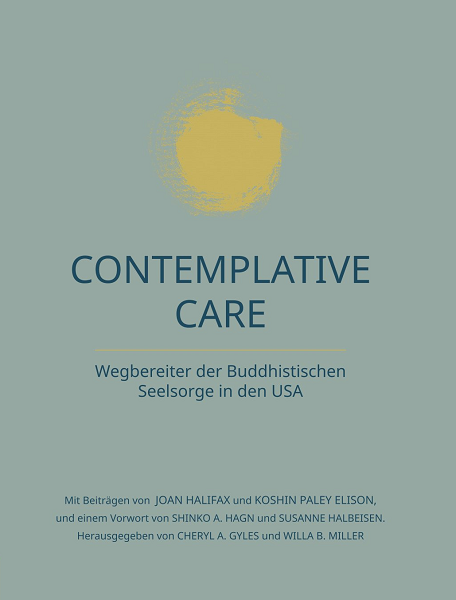Contemplative Care

Lilla Watson, Australian activist
“If you have come here to help me you are wasting your time, but if you have come because your liberation is bound up with mine, then let us work together.”
The term “Contemplative Care”, still largely unknown in Europe, is close to our hearts. It entails our approach to caring about ourselves and others, based on contemplative practice. In the US, this view has been established over the last twenty years and been put to use in various institutions and contexts.
In German-speaking countries, the term “Seelsorge” is more familiar. In a Buddhist context, however, “Seelsorge” (which literally translates to “sul care” and means chaplaincy, pastoral care) is a difficult word. However, we have to use the term when working in the field, because it is legally binding. In addition, many people are familiar with the concept of “pastoral care” or “chaplaincy”, “Seelsorge.
“Spiritual Care” is another concept that is becoming more widely in our country, but here too there is a difference “Contemplative Care” an “Spiritual Care”. While Spiritual Care generally refers only to spiritual care within the care setting, “Contemplative Care” involves the contemplative practice of all involved, including the caretaker and his/her personal life and practice.
Our many years of experience in pastoral care have shown us that the cultivation of personal contemplative practice is fundamentally important. With this foundation, we can care for ourselves and others. Contemplation enables us to transform our experiences in our encounters with others. We neither have to turn away from suffering and create a distance, nor do we have to be carried away by it and suffer with it ourselves. Through continuous, consistent practice and reflection, we can accept and transform what is there. Openness and compassion can unfold within us.
We create a space, a field in which nothing is evaluated, judged or discussed. A space in which everything is allowed to appear. Being absolutely, limitlessly allowed to be seen by others in turn makes the unfolding of the other person truly possible. It enables the unconditional and complete acceptance of the other. This acceptance and being seen holds the great potential for a fundamental change, because it’s the only way in which the other person can also see and accept him/herself. This is the fundamental experience of compassion for oneself. The resulting insights are the basis for developing responsibility for one’s own life, and consequently, responsibility for fellow human beings. The important thing here is the process, and how it is embedded into a community.
In order to make this approach better known in German-speaking countries, we have translated the standard US text book, The Arts of Contemplative Care, into German. You will be able to order it from us shortly. We will also present the book at public reading events in various places in Austria (dates to follow). In our seminar program Verbundenheitspraxis (“Connectedness Practice”) we share our experiences in pastoral care and dialogue work.

